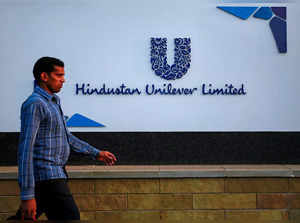 Reuters
Reuters"Skin cleansing was flat with a small increase in price, offset by the decline in volume. In Asia, we saw the impact of commodity cost deflation on the personal wash business in India and market challenges in Indonesia, which resulted in declines in Lux and Lifebuoy, both large brands in these geographies," Fernando Fernandez, chief financial officer, Unilever, told analysts.
The maker of Surf and Rin said its global home care grew 3.1%, but price growth fell 1.1%.
"The negative price was driven by fabric cleaning, where we saw higher-than-expected cost deflation in laundry powders, which resulted in negative prices in key emerging markets such as India and Brazil," Fernandez added.

Companies including Hindustan Unilever have cut prices of soaps, detergents and tea amid falling commodity prices, hoping to regain market share from them.
HUL said compared with 2021, it has improved its corporate market share by almost 200 basis points. After the entry of local players, it has seen a marginal retreat in its market shares, although it is holding on to almost all of the gains made in 2021 and 2022.
One basis point is a hundredth of a percentage point. The country's biggest consumer goods firm had lost share, particularly in the mass end of the market in laundry and soaps, but is now seeing gains due to price cuts, the company said in its investor call.
"In the mass end of detergent bars, we have seen a recovery in volumes almost like a U-turn after we corrected in the market. And the second on mass cleansing, we had to go one more level because we had corrected prices and we will see how that turns around in the next few quarters. But those are the 2 categories where we lost more material shares, but those are coming back," Rohit Jawa, MD, Hindustan Unilever, told analysts.
During the quarter ended March, HUL's revenue rose about 1% in the largest segment, homecare, which includes brands such as Surf and Domex, while volume expanded about 5%.
Download The Economic Times News App to get Daily Market Updates & Live Business News.
Read More News on
Download The Economic Times News App to get Daily Market Updates & Live Business News.









 Get Unlimited Access to The Economic Times
Get Unlimited Access to The Economic Times
